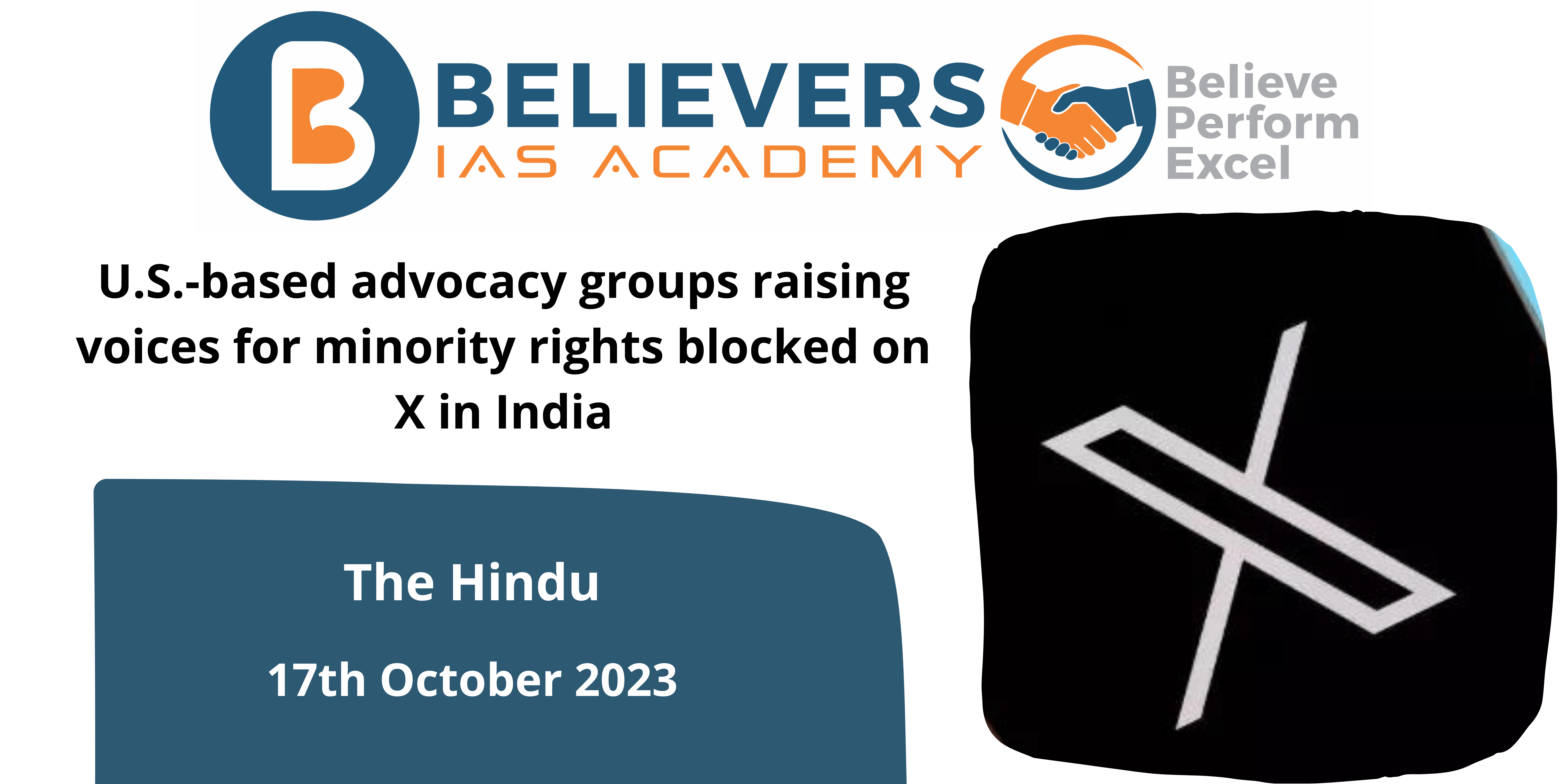U.S.-based advocacy groups raising voices for minority rights blocked on X in India
Context
The accounts of the Indian American Muslim Council (IAMC) and Hindus for Human Rights (HfHR), two U.S.-based non-profits that often critique the track record of Indian political leaders on matters pertaining to minority and caste rights in India, have been blocked in India as of Sunday. The social media site X was once known as Twitter. According to a statement on the network, a “legal demand” led to the suspension of their handles.
What is the background behind the issue?
- Nonprofit groups located in the United States that are well-known for criticizing caste and minority rights policies in India are the Hindus for Human Rights (HfHR) and the Indian American Muslim Council (IAMC).
- In India, the social media accounts of IAMC and HfHR (known as “X” on Twitter) were disabled.
What was the reason behind the blocking of their accounts?
- It’s unclear exactly whose body or authority made the directive to block these accounts.
- According to a notice posted on Twitter, their handles were suspended as a result of a “legal demand.”
- Although India restricted their Twitter accounts, Indian users can still access the IAMC and HfHR Facebook pages.
- Before a current lawsuit, Twitter is challenging what it regards as the Indian Union government’s disproportionate orders for Internet blockage before the Karnataka High Court. Twitter has largely complied with most takedown demands despite this legal dispute.
Why did the Internet Freedom Foundation criticise the government for the banning?
- The Indian government’s actions were challenged by the Internet Freedom Foundation (IFF), which is based in New Delhi.
- According to IFF, the number of Indian Twitter users having their complete account disabled has increased. They contend that this is an excessively harsh policy that may even be unconstitutional.
- IFF also criticizes the lack of openness in communicating blocking orders, arguing that it is unlawful and creates a culture of zero accountability.
What are the constitutional laws that protect the freedom of expression and speech?
- The Indian Constitution’s Article 19(1)(a) guarantees the right to freedom of speech and expression to all of its inhabitants. This includes the freedom to openly express their thoughts and opinions through writing, verbal exchanges, visual media, motion pictures, and banners.
- This freedom isn’t unrestricted or total, though. A list of “reasonable restrictions” or exceptions to that privilege is included in Article 19(2).
How do we improve the freedom of speech and Expression in India?
- Strengthen Legal Frameworks: To enhance legal frameworks, it is necessary to modify or revise current legislation to guarantee that free expression rights are safeguarded and unduly restricted. To avoid abuse, laws about hate speech, defamation, and sedition should be reviewed and revised.
- Accountability and Transparency: Ensure accountability in government directives about the removal of information and the suspension of social media accounts. These directives ought to be available to the public and open to court scrutiny. Make sure that individuals who censor speech are held accountable for their activities and that any abuse of power results in consequences.
- Encourage media freedom by Promoting an independent and varied media environment. Defend journalists and informants against intimidation and threats.
- To uphold moral standards, and support and bolster organizations like the News Broadcasting Standards Authority and the Press Council of India.
- The concepts of media and digital literacy: Encourage media and digital literacy to assist citizens in evaluating news and information sources critically.
- Promote fact-checking and appropriate internet conduct.
- Safeguarding Digital Platforms: Establish fair and transparent policies for internet platforms while honouring their intermediary role. These rules should strike a balance between the removal of offensive or illegal information and user privacy and freedom of speech.




